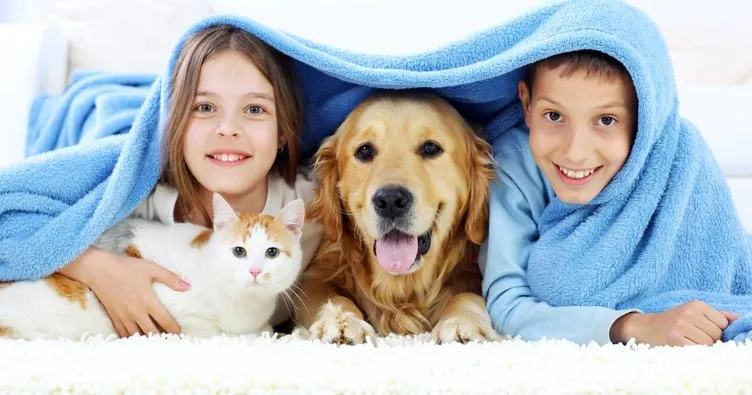CHILD HEALTH AND PETS
Every day a child tells his parents that he wants to buy a cat / dog home. Generally, parents look at this situation with fear. On the one hand, they do not want to upset their children, and on the one hand they can not know for the first time what they want to do with their love of animal love and fear of getting sick.
I am also in this issue of our magazine; I heard the same question from my son yet fresh; I think it might be a subject that needs to be shared with you. But there is a strange thing in our house. We already have a dog. Yes my son wanted 2nd. Like all parents, I said a clear \”no\” first. Then I insist and insist on reasonable justifications, and eventually I surrender.
Is the coexistence of pets and children healthy?
Is hygiene sufficiently careful?
How is the situation for allergic children?
Which animal should be selected?
It provides more benefits for pets as they are supposed to be together in the environment where children grow up. Contribution to social, mental and emotional development will surely be. Taking responsibility is important in the development of self-esteem, as there is a need to respect the right to life of a different living creature, the ability to adapt to differences about its existence, the acceptance of the existence of rules and where to stop. It\’s still important to learn to share, to live in harmony. However, the perception that parents are not toys that can be bought and sold, enthusiastically left behind should be given clearly. Or, as a generation ready to do everything for our children, like us, in the consumer society we live in, that our children will overcome animal love; irresponsible and empathy-free individuals.
For example, more burdens in terms of hygiene, more attention, the ability to cope with small accidents, and the need to deal with the pet\’s health are making extra effort for families. They should be taught regularly, toilet training and areas where they should not be in the home. It should be investigated thoroughly before deciding that there are genuses with good potential for harming the child as well as those with known good passages with children. Even before we own an animal, we must find a veterinarian that we can trust ourselves, and we must get guidance from this stage.
We said it would be beneficial to grow with the animals who are regularly vaccinated, supervised, and sure to have no disease. However, children with allergies need to be more careful. For every child known to be allergic to the rest of the world, any animal is not a threat. It should be clarified which animal is allergic to the hair, epithelium, and the specialist should be consulted before depriving allergic children who have already had to become sick more often than the other children. According to the \”Hygiene Theory\”, which is a great sensation in the medical literature, it is said that couples with allergic potential begin to feed animals in their homes before the baby owner and if the child grows up with that domestic animal, he or she is neutralized by allergic reactions. Of course, this is not so simple, it should certainly be discussed by experts on an individual basis. Also, remember that \”the animal feathers have been cysts in the throat escaped liver,\” the subject summarized among the population is still not applicable to animals that have been vaccinated and known to what they eat.
In summary, as a pediatrician with a new 2nd dog, this article can be considered as a positive recommendation on pet ownership. However, it should not be forgotten that it is a serious responsibility, if you are confident in yourself, take this job.
Görkem ASTARCIOĞLU

